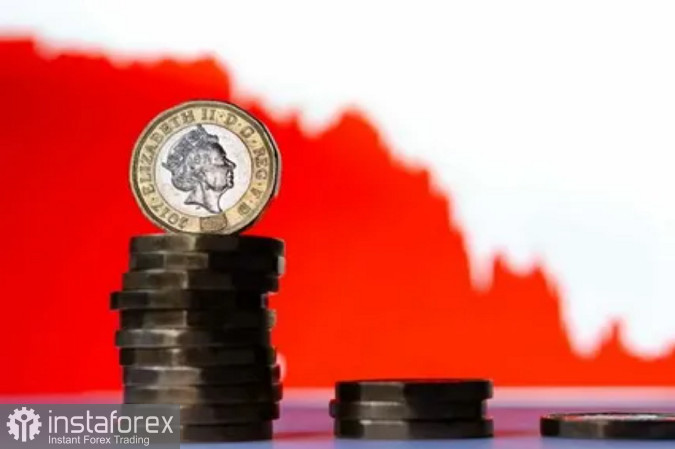
Inflation in the UK accelerated more than expected last month to a 40-year high, putting more pressure on consumers and increasing pressure for action from the government and the Bank of England.
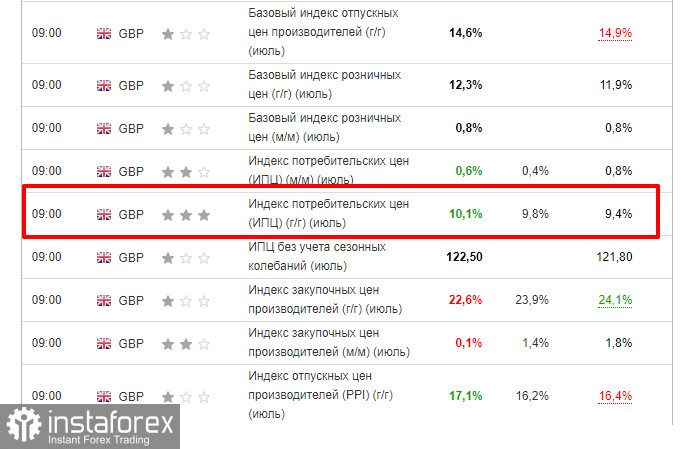
The consumer price index rose 10.1% in July from a year earlier, after rising 9.4% a month earlier, the Office for National Statistics said Wednesday. The figure was higher than expected by both the BoE and private sector economists.
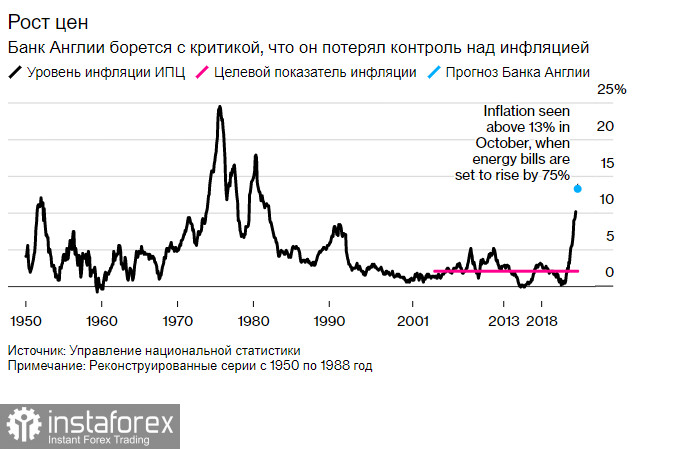
Rising food prices contributed the most to the month-on-month gains, indicating inflationary pressures extend beyond energy. Investors moved to pricing in a 2 percentage point increase in the BoE's key rate to 3.75% by May next year.
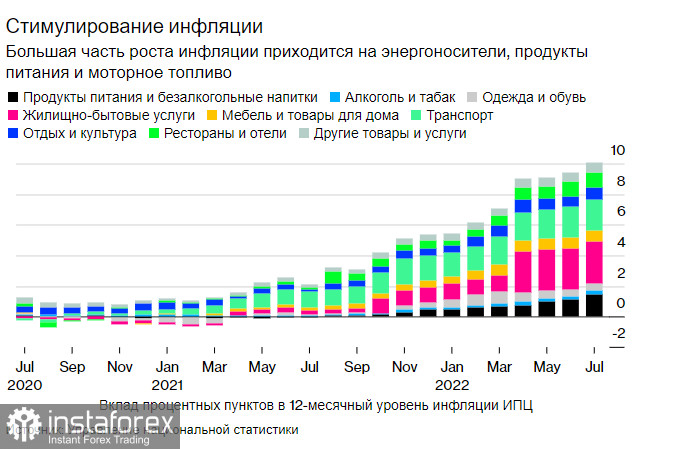
"Food prices have risen markedly, especially for baked goods, dairy products, meat and vegetables, which has also been reflected in higher takeout prices," said Grant Fitzner, chief economist at ONS. Pets, toilet paper rolls, toothbrushes and deodorants also pushed up inflation in July."
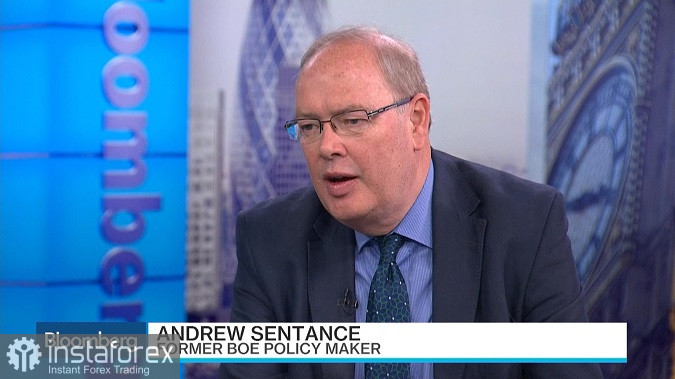
Andrew Sentance, a former board member of the BoE, said the key rate may have to be raised to 3% or 4% because politicians are "behind schedule."
Core inflation - excluding energy, food, alcohol and tobacco - accelerated to 6.2% in July from a year earlier, higher than economists had expected of 5.9%.
These figures exacerbate the cost of living crisis as wages continue to fall due to rising prices for goods and services of all kinds. The BoE expects inflation to top 13% in October as energy caps reset and BoE Governor Andrew Bailey signaled he was ready for further interest rate hikes. Investors are expecting another 50 bps rise in September.
Challengers seeking to replace Boris Johnson as prime minister are promising further aid to those who are struggling to pay their bills.
"Rising inflation is really putting pressure on real wages, even with strong wage growth," said Mike Bell, global market strategist at JP Morgan Asset Management. "And it's only going to get worse with the increase in electricity bills in October."
The main British stock index technically has a huge downside potential:
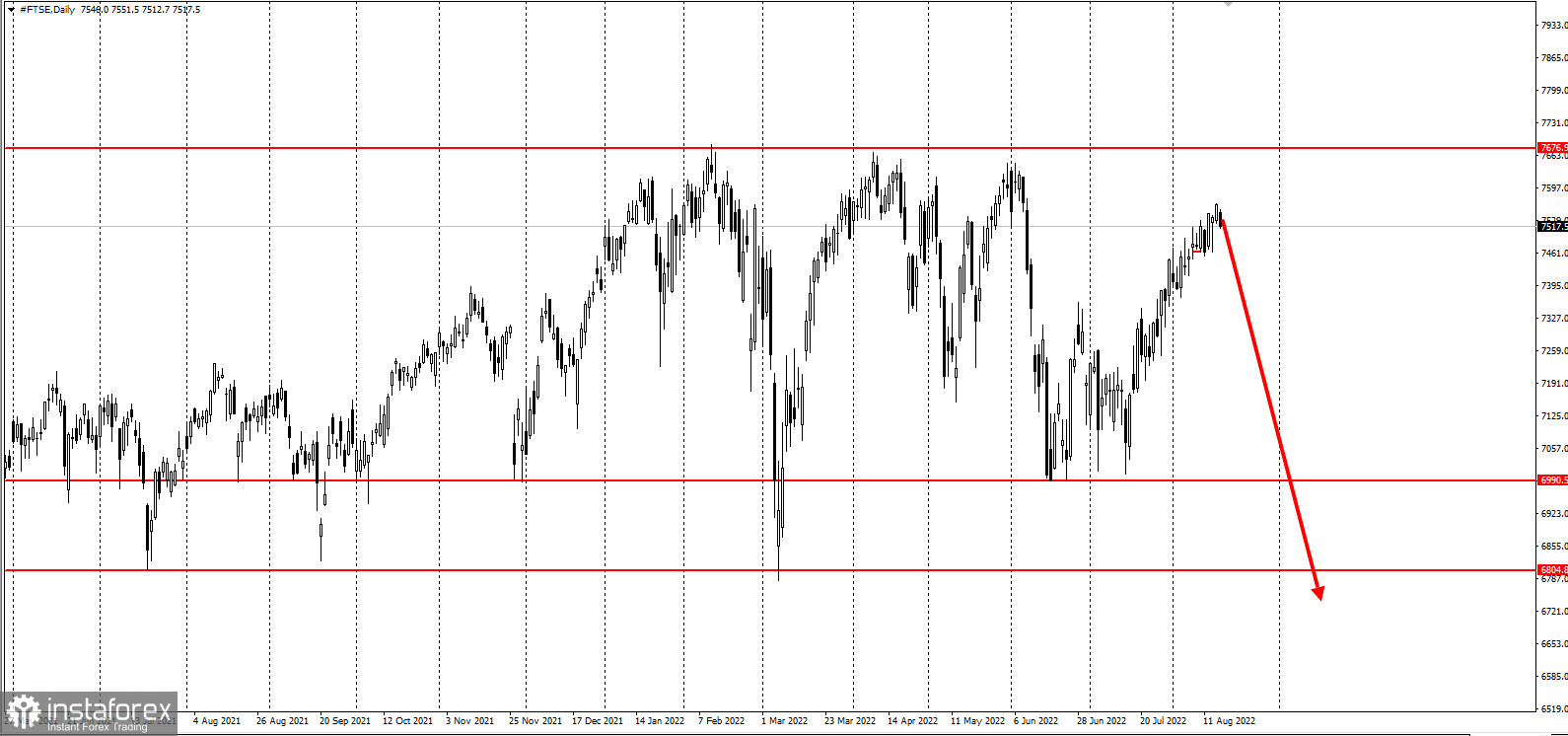
Economists are becoming increasingly pessimistic about the UK as the risk of a recession is now seen as much more likely due to rising price pressures. The BoE expects the recession to start in the fourth quarter and last until early 2024.
The central bank expects inflation to top 13% later this year as the central bank allows electricity bills to rise again. This would be the worst performance since September 1980, when Margaret Thatcher's government struggled to bring the wage and price spiral under control.
Separate data showed that price pressure on pipelines appeared to be easing, with fuel and raw material prices rising just 0.1% in July, the smallest monthly increase since December. This was mainly due to the fall in crude oil prices during the month. Commodity prices still rose 22.6% year-on-year, only slightly below the record high in June.
Product prices rose 1.6% mom and 17.1% from a year earlier, the biggest annual increase since 1977.
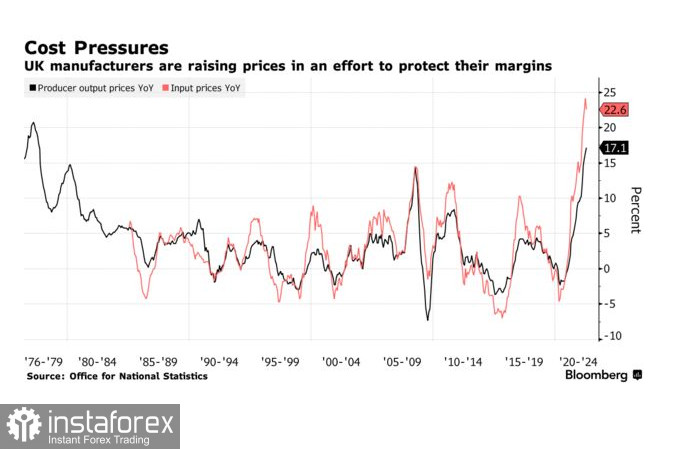
Bailey accused Russia of cutting off natural gas supplies, driving up the cost of electricity across Europe and boosting inflation. Gas futures, projected by the BoE this month, were nearly double their levels in May and rose even more last week.
This growth is reflected in the cost of goods and services, prompting people across the country to demand higher wages. Railroad workers are planning another round of strikes this week, and teachers, lawyers and nurses are considering taking their own measures.
Inflation-adjusted real wages fell 3% in three months, though June was the sharpest pace since 2001, according to official data released Tuesday. Employment increased by 160,000 in the second quarter, down 46% from the three months to May, and job openings fell for the first time since August 2020.
"The cost of living crisis is now very real for both households and businesses, so a concrete way is needed to support vulnerable populations with higher energy bills," said Alpesh Palea, lead economist at the Confederation of British Industry.
 English
English 
 Русский
Русский Bahasa Indonesia
Bahasa Indonesia Bahasa Malay
Bahasa Malay ไทย
ไทย Español
Español Deutsch
Deutsch Български
Български Français
Français Tiếng Việt
Tiếng Việt 中文
中文 বাংলা
বাংলা हिन्दी
हिन्दी Čeština
Čeština Українська
Українська Română
Română

